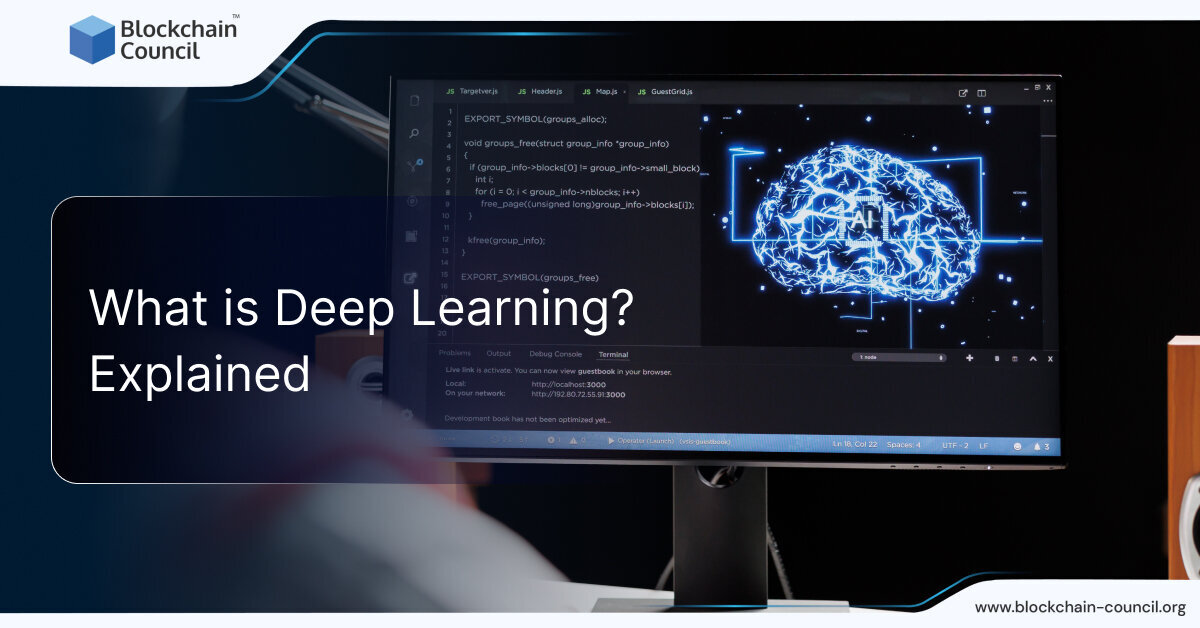
- Blockchain Council
- October 24, 2024
In the last few years, the entertainment scene has gone through many changes, with artificial intelligence (AI) playing a major role in transforming how interactive stories are created. This growing technology is helping content creators expand beyond the limits of traditional storytelling, giving audiences more immersive, dynamic, and tailored experiences. AI’s influence can be seen in different types of media, from video games to virtual reality and other digital content.
AI-Enhanced Storytelling
AI is changing the way stories are built, making room for adaptive and non-linear plots. These types of stories allow the audience to play a role in determining how the plot unfolds. This shift is especially clear in the gaming industry, where AI assists in creating branching storylines based on the player’s choices. Games like Detroit: Become Human and Life is Strange are good examples of this, showing how decisions made by the player can lead to various outcomes, offering a unique experience each time. AI enables these plots to shift naturally, shaping the story around each player’s personal choices.
In AI-based storytelling, algorithms study user interactions to craft a more individual experience. AI systems like IBM’s Watson have been used in multimedia projects to develop engaging, personalized experiences. These tools help push traditional formats by offering unique content, such as suggestions based on user behavior, whether it’s for recipes or narrative directions.
Earning the Certified Artificial Intelligence (AI) Expert™ certification helps build a solid foundation in how AI can enhance complex systems. This translates well into understanding its growing role in interactive storytelling.
Virtual Reality and Deep Immersion
Virtual reality (VR) has added another dimension to how stories are experienced. By using VR headsets, users step into fully immersive environments, letting them become active parts of the narrative. AI plays a key role here by creating spaces that adjust in real-time based on user actions. In VR games, for instance, AI generates highly realistic environments that react to player decisions, making the world feel more vibrant and alive. This level of interaction is essential for building immersive stories that blur the line between fiction and reality.
In interactive storytelling, knowing how to guide AI with well-crafted prompts is vital for producing engaging narratives. Becoming a Certified Prompt Engineer™ equips you with the skills to effectively collaborate with AI in these creative environments.
AI’s Role in Gaming
The gaming world has long been a leader in interactive storytelling, and AI’s influence is growing even stronger in this space. AI is making non-playable characters (NPCs) more intelligent and responsive to the actions of players. Games such as Cyberpunk 2077 and The Last of Us Part II have NPCs that adapt to the player’s choices, offering more realistic interactions. This helps increase immersion, as players experience unpredictable, natural responses from these characters.
Additionally, AI has introduced procedural generation in gaming, where new environments and levels are created instantly. Games like No Man’s Sky and Minecraft make use of this technology to craft enormous, ever-changing worlds. This keeps players interested by offering something different each time they play. AI’s capability to generate varied content without repetitive patterns creates expansive worlds, giving players the freedom to explore without limits.
As AI plays a larger role in shaping interactive narratives, earning the Certified Artificial Intelligence (AI) Developer™ credential provides the technical skills to create more efficient systems that bring immersive stories to life.
AI and User-Generated Content in Digital Media
Beyond gaming, AI is also reshaping other areas of entertainment, including digital stories and user-driven content. Platforms like Twitch and YouTube have changed the way stories are shared, with creators now using AI to engage their audiences in interactive ways. Viewers can influence how the story unfolds through real-time input, making the process more collaborative. With AI algorithms supporting these tools, the line between the storyteller and the audience becomes increasingly blurred.
In multimedia, AI programs like Adobe Sensei are used to enhance images and videos, making them visually appealing through automatic color changes and filter suggestions. This not only speeds up the creative process but also improves the final product’s appearance. AI’s ability to analyze user preferences also helps in making content recommendations more relevant, ensuring that viewers are shown the kinds of stories that match their tastes.
For those looking to enhance their expertise in AI-driven content creation, the Master Artificial Intelligence (AI) Learning Path offers valuable insights that can elevate your contributions to interactive storytelling and digital media projects.
Challenges and Ethical Considerations
While AI brings exciting developments to storytelling, there are concerns that must be addressed by creators and developers. AI-powered tools are incredibly effective, but they can also be used for negative purposes, such as misleading audiences. For example, deepfake technology can produce very realistic yet fake videos, confusing the line between what’s real and what’s not. As AI becomes more deeply integrated into storytelling, it will be important to maintain transparency and ethics so that audiences can trust the content they consume.
Final Thoughts
AI is transforming interactive storytelling in ways that seemed impossible a few years ago. From video games with changing storylines to highly immersive VR experiences, AI is giving storytellers new tools to connect with audiences in deeper, more meaningful ways. As AI continues to advance, we’ll likely see even more dynamic, personalized, and immersive stories across different media platforms. Still, as AI continues to influence entertainment, it’s necessary to address the challenges it brings, especially ethical concerns, to maintain the honesty and integrity of storytelling.
AI-driven interactive storytelling introduces new challenges. The Unlimited Learning Subscription (AI) ensures access to the latest applications, helping you stay updated on the most relevant tools and trends shaping this rapidly evolving space.


































































 Guides
Guides News
News Blockchain
Blockchain Cryptocurrency
& Digital Assets
Cryptocurrency
& Digital Assets Web3
Web3 Metaverse & NFTs
Metaverse & NFTs
